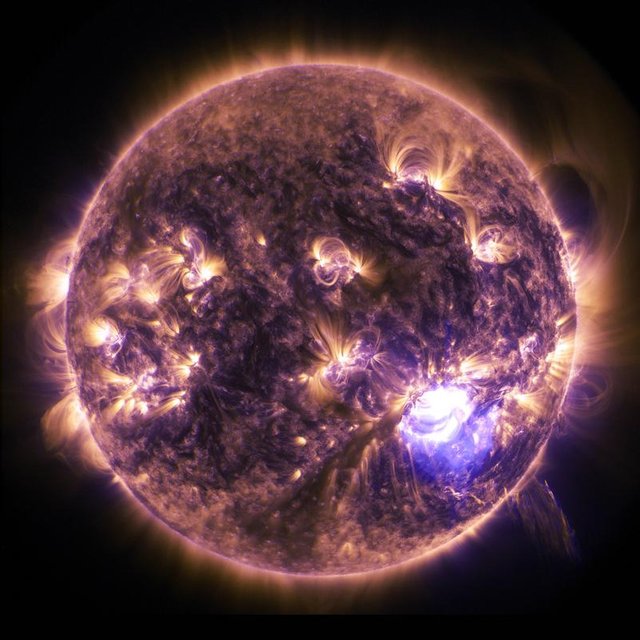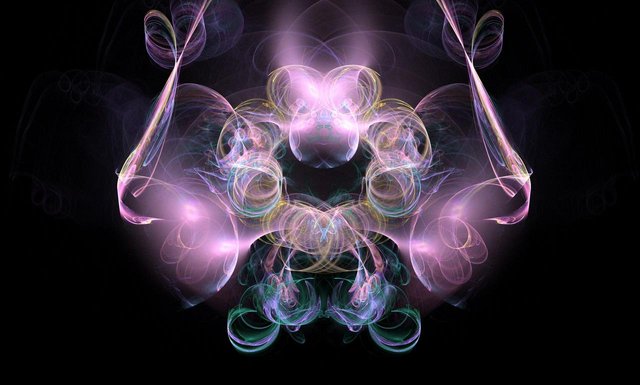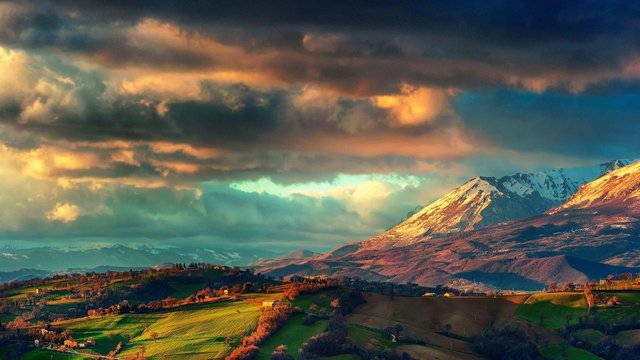A Poetic Meditation: Nature, Spirituality, and Identity in Emily Dickinson's 1170

Nature, in Dickinson’s definition, is everything that was, is, and ever will be…
Nature affects to be sedate
Upon occasion, grand
But let our observation shut
Her practices extend
To Necromancy and the Trades
Remote to understand
Behold our spacious Citizen
Unto a Juggler turned—
- 1170, Emily Dickinson
Dickinson in her own unique style of saying so much with so little delivers one of the most powerful epiphanies a person can have during their lifetime... in eight lines.
She transcends literary boundaries as she demonstrates how tuned in she actually was to what she defines in this piece as Nature.
Her use of capitalization and diction, rhyme scheme, and rhythm are executed masterfully and essential to understanding what the epiphany actually is.
As is well known amongst Dickinson’s fans, her use of capitalization and diction are so key that they can be used as the foundation for understanding the message that Dickinson is delivering. So quickly observing the unique capitalizations one can determine that the words “Necromancy”, “Trades”, “Citizen” and “Juggler” are significant words.
“Necromancy” could be defined as a communication with the dead. This is interesting because further inspection of that definition indicates that if you communicate with something that is “dead” then it isn’t really dead, is it?
A paranormal investigator (someone who studies energy fields) will tell you that a spirit—a person that by the physical definition has died—will use the energy in its surroundings to manifest itself. This brings the attention to the next word “Trades”, which for this poem can be simply defined as exchanges.
The fact that these words are both in the same line indicates that Dickinson is pointing the reader in the direction of the paranormal. In this case, paranormal meaning an occurrence or event without scientific explanation.
In this case, consider the definition of necromancy as a “communication with energy”. With this being said, Dickinson knew exactly what she was doing when she chose the word “necromancy”, and even more so when she decided to put the word Trades in the same sentence. This will become clearer through further inspection of the poem.

“Citizen” can be simply defined as an inhabitant and “Juggler” as someone who tries to maintain balance and even deceive and trick in order to keep that balance.
A few other words that aren’t capitalized but still weigh heavy into the discussion are “sedate” which can be defined as calm, stillness, or in this case—presence; “Grand” which can be defined as immense or intense; “observation”, alluding back to the scientific explanation or lack thereof, which can be defined as what is perceived with the senses or the mind; “remote” meaning of great distance or of having control from a far distance; and lastly “spacious” which in this case simply means that which takes up space.

This combination delivers the foundational meaning of the poem. However, in order to fully understand it, further inspection of the other literary devices is necessary first.
One of the denser aspects of this piece is Dickinson’s rhyme scheme. This could get a bit confusing as it follows an ABCBABDE structure.
Ralph Waldo Emerson mentioned that nature belonged to the poet, and with this in mind, the scheme seems to point at something interesting… Why not maintain the ABABAB structure in the first six lines? Why add “But let our observation shut” which is represented by C in the structure of those lines.
The structure along with the content of the C line indicates the first clue that Dickinson is giving the reader instructions.
As Emerson also mentioned, once we get to a point of knowing we only realize that there’s something else that needs to be discovered.
In this case, “instructions” to what?
When attention is brought to the content of the matching AB rhyme scheme Dickinson’s definition of nature is revealed.
The four lines “Nature affects to be sedate/ Upon occasion, grand/ … / To Necromancy and the Trades/ Remote to understand” demonstrate the appearance of nature in the first half—which is that of both calmness and intensity—then the action she takes and the result that action yield in the second half—which is a communication and an exchange, that is far beyond what the brain or mind can grasp, but because of this communication and exchange something deeper within us intuitively understands.
Now instead of focusing on the A’s and B’s of the structure, arrange in alphabetical order the lines that aren’t accompanied by a rhyming line. Lines C, D and E contain another message when saying “But let our observations shut/ Behold our spacious Citizen/ Unto a Juggler turned—“ which could be interpreted as the instruction to shut off your senses/mind/thoughts—bringing upon an awareness to the unfolding of nature, causing a shift in perspective.
However, these are only pieces of the message.
Dickinson’s use of rhythm also leaves clues to the instructions to realizing this epiphany. Line 1’s rhythm can be identified as a trochaic tetrameter; line two as a trochaic trimeter; and the rest of this poem follows the same pattern.
What if one split the lines up in order to follow what the trochaic tetrameter was saying (since this is what the poem starts with) and then what the lines containing the trochaic trimeter rhythm are saying?
So essentially it would look something like this:
“Nature affects to be sedate/ But let our observation shut/ To Necromancy and the Trades/ Behold our spacious Citizen” which when given the context of the use of capitalization and diction would paraphrase to mean that nature produces a sense of calm/being composed when attention is brought to it, but you don’t need your senses/mind, in order to communicate with the “dead”/energy and experience an exchange of energy with nature, this is when you understand that nature is as much a part of you as you are a part of it.
You are nature, nature is the spacious Citizen, thus you are the citizen as well, meaning that you yourself not only inhabit the space you perceive as the separation between you and the other living things in your physical surrounding—but you are in fact that space as well. Same goes with those other living beings inhabiting that same space because those other living beings are a fractal of you as well.

Continue following the trochaic trimeter, “Upon occasion, grand/ Her practices extend/ Remote to Understand/ Unto a Juggler turned –“. Again, when taking into consideration the context of the use of capitalization and diction, one can start where the trochaic tetrameter ended and paraphrase the meaning to be that this instance can be immense/intense for Nature's methods of delivering this communication and exchange of energy, are far beyond what our senses/minds/logical thoughts can comprehend, this is essentially what brings about a sharp change in the mind/trickster and how it perceives the reality around it—which then, with the use of the only dash in the entire poem (that happens to be on the last line), brings the reader back around to the beginning where nature brings about a sense of calm—and the process continues.
This core message, when combined with the use of rhyme scheme and rhythm along with the messages that each technique delivers when dissected and analyzed, demonstrate the true genius and divine intuition that Dickinson had.
- The rhyme scheme reinforced the manifestation of Nature that is demonstrated in the core message, then the action she takes and the consequences of those actions.
- Then the instruction to shut off the mind is reinforced as well, which brings upon a higher awareness, causing a shift in perception—an elevation of consciousness.
- The messages she left through rhythm were that this change is the realization that we are ALL already one with nature and the illusion of separation is exactly that—an illusion.
Nature is as much a part of you as you are a part of it.
You are the spacious Citizen, just like every living being is as well...
When combining it all, Dickinson is saying that this awakening can be incredibly intense, for nature’s methods of delivering this communication and exchange of energy are far beyond what our minds can grasp--so stop trying to!
When you let go, a sharp change in the mind occurs and you are no longer tricked by your own mind because you intuitively understand the truth of the reality around you.
This intuition is essentially what allows you to become the master of your own kingdom, but beware and don’t get comfortable because Dickinson’s favorite tool (the dash) is only used once in the entirety of the poem and it is the poem’s most significant moment.
This is because the dash means there is something more, it doesn’t end, this awakening brings you back to the state of stillness and the process continues at a higher vibrational frequency because you are becoming more and more aligned with nature—with who you are at your very core.
Nature in Dickinson’s definition is everything that was, is, and ever will be…

I explore the concepts of nature, spirituality, and consciousness deeper in other posts you might like, such as the one below:
Anyway, I know discussions on these topics can get pretty dense but I'm interested in seeing what you guys have to say. Was Dickinson on to something?
Wow thank you for such an in-depth analysis. I love both literature and meditation, and so I have no choice but to follow your work! My own blog's emphasis is on meditation, feel free to follow if you find it interesting.
No problem, thanks for reaching out. I'll definitely give your stuff a look as well.
nice 1 sir
10.78% @pushup from @carlos.gonvilla
You got a 3.86% upvote from @buildawhale courtesy of @carlos.gonvilla!
If you believe this post is spam or abuse, please report it to our Discord #abuse channel.
If you want to support our Curation Digest or our Spam & Abuse prevention efforts, please vote @themarkymark as witness.
Thank you carlos.gonvilla for making a transfer to me for an upvote of 7.38% on this post!
Half of your bid goes to @budgets which funds growth projects for Steem like our top 25 posts on Steem!
The other half helps holders of Steem power earn about 60% APR on a delegation to me!
For help, will you please visit https://jerrybanfield.com/contact/ because I check my discord server daily?
To learn more about Steem, will you please use http://steem.guide/ because this URL forwards to my most recently updated complete Steem tutorial?
This post has received a 7.07 % upvote from @boomerang thanks to: @carlos.gonvilla
This post has received a 4.14 % upvote from @booster thanks to: @carlos.gonvilla.